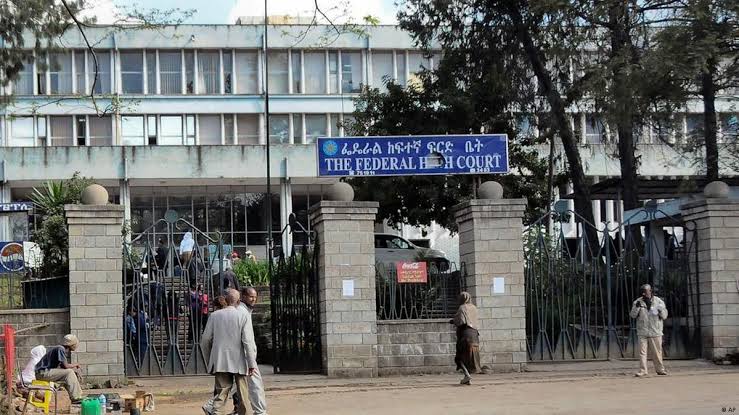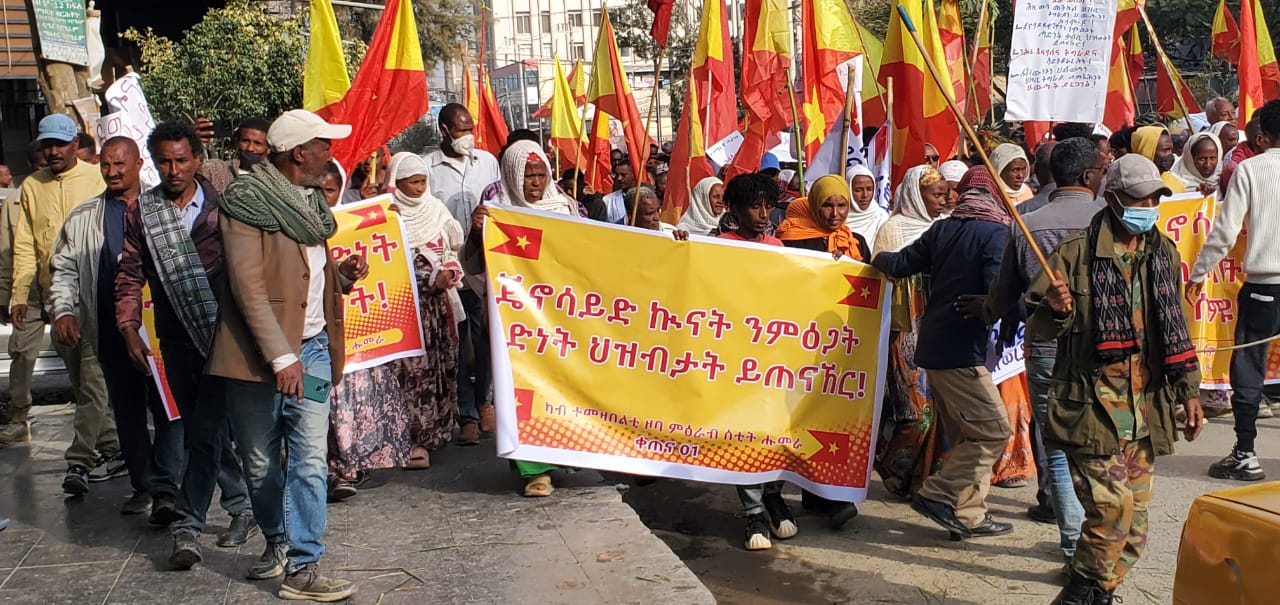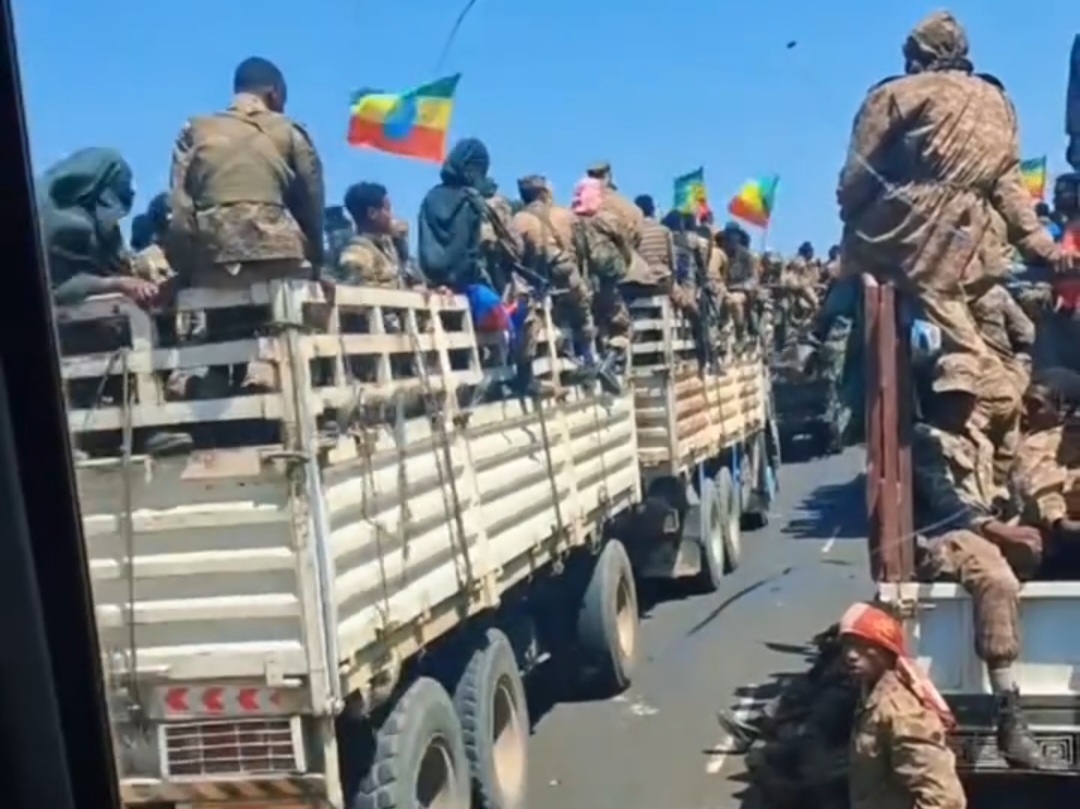By DR. YONAS WORKINEH
Since Abiy Ahmed took power as the Prime Minister of Ethiopia in April 2018, his tenure has been marked by both optimism and controversy.
Initially hailed for his promises of reforms, including efforts to stabilize a nation long affected by political repression and conflict, Abiy’s leadership has increasingly drawn criticism for its authoritarian tendencies.
One of the most significant indicators of this regression into authoritarianism is the government’s pattern of mass arrests.
Over the past six years, numerous journalists, government officials, and civilians have been detained, especially those who dared to question or criticize the government.
Arrests of Journalists
The media in Ethiopia has faced one of the harshest crackdowns under Abiy’s regime.
Journalists, whose work is essential for holding governments accountable, have been among the most frequent targets.
In the early years of Abiy’s rule, there was hope for freedom of the press as many imprisoned journalists were released.
However, that period of optimism has been replaced with growing fears as the government began to clamp down on press freedom.
Journalists have been arrested, prosecuted, and often accused of inciting violence or collaborating with outlawed groups.
Many media professionals who sought to investigate the government’s actions, especially during the conflicts in Tigray and Oromia, have found themselves facing charges or in fear of arbitrary arrests.
Media outlets that dared to criticize government actions or policies have also been shuttered.
Fellow media personnel who are currently detained and similarly risk unjust sentencing, include Meskerem Abera, Gobeze Sisay, Bekal Alamirew, Tewodros Zerfu, Genet Asmamaw, Dawit Begashaw and Abay Zewdu.
The increasingly repressive environment has led to a mass exodus of journalists seeking refuge abroad due to fear of prosecution.
African Argument reported that In 2019, there were 25 arrests of 24 media workers.
The following year saw a dramatic spike to 71 arrests of 62 individuals, highlighting an alarming escalation in governmental crackdowns on the press.
Although the number of arrests decreased in subsequent years—with 58 arrests in 2021, 46 in 2022, and 40 in 2023—the consistent presence of arrests indicates a persistent threat to journalists.
In 2024 alone, four media workers have already been arrested, suggesting that this issue is far from resolved.
The stifling of independent journalism has created an atmosphere of fear and self-censorship within the Ethiopian media landscape, further eroding democratic governance.G
Targeting government Officials and MPs
While opposition figures and critics outside the government were the early targets of repression, the wave of arrests under Abiy’s government has not spared even members of his own administration and political apparatus.
Several government officials and parliament members have been arrested, charged with corruption, or accused of conspiring against the state.
This pattern of arrests is often interpreted as a means of consolidating power and suppressing dissent within the ruling party and broader political sphere.
Many of these individuals had once been part of Abiy’s reform agenda but later fell out of favor due to their criticism of his policies or actions.
The government’s actions raise concerns about its intolerance for dissent, even within its ranks.
This growing authoritarianism reflects the paradox of a leader who came to power promising democratic reforms but has since used the state’s legal and coercive apparatus to silence critics.
Ethnicity based attacks
The Ethiopian government’s crackdown on civilians, reflects a more troubling aspect of Abiy’s administration.
Amid escalating violence and instability, particularly following the Tigray War, the government has increasingly arrested civilians under suspicion of being affiliated with armed groups like Fano, a militia group that has been involved in defending Amhara interests.
These arrests are part of a broader attempt by the government to quash dissent and eliminate any potential threats to its authority.
Unfortunately, these actions often exacerbating ethnic tensions and deepening divisions within the country.
The mass arrests of civilians, without due process or evidence, have led to widespread human rights violations, as many are held without trial, legal representation, or clear charges.
The targeting of civilians based on their ethnic identity raises grave concerns about ethnic profiling and the potential for further ethnic violence in Ethiopia.
Implications of the Mass Arrests
The Ethiopian government’s actions against journalists, government officials, and civilians have had dire consequences for the country’s political and social stability.
The mass arrests and repression of critical voices have contributed to the erosion of democratic governance and the rule of law.
By silencing journalists, the government has undermined the ability of the media to act as a watchdog and hold those in power accountable.
The arrest of government officials and parliament members who express dissent discourages healthy political debate and opposition, which are critical to a functioning democracy.
Furthermore, the targeting of civilians, especially along ethnic lines, threatens to tear apart Ethiopia’s already fragile social fabric.
Ethiopia has a long history of ethnic federalism, and the government’s actions against ethinic groups could lead to heightened ethnic tensions and conflict.
The mass arrests have not only violated basic human rights but also fostered an environment of fear and mistrust among different ethnic communities.
Conclusion
The mass arrests under Abiy Ahmed’s government reflect a disturbing trend towards authoritarianism, despite his initial promises of democratic reforms.
The targeting of journalists, government officials, and civilians—has revealed the lengths to which the government will go to suppress dissent and consolidate power.
These actions have undermined press freedom, eroded the rule of law, and exacerbated ethnic tensions in Ethiopia.
Moving forward, it is critical for the Ethiopian government to re-evaluate its policies and prioritize dialogue, democratic governance, and the protection of human rights to prevent further escalation of conflict and instability.



